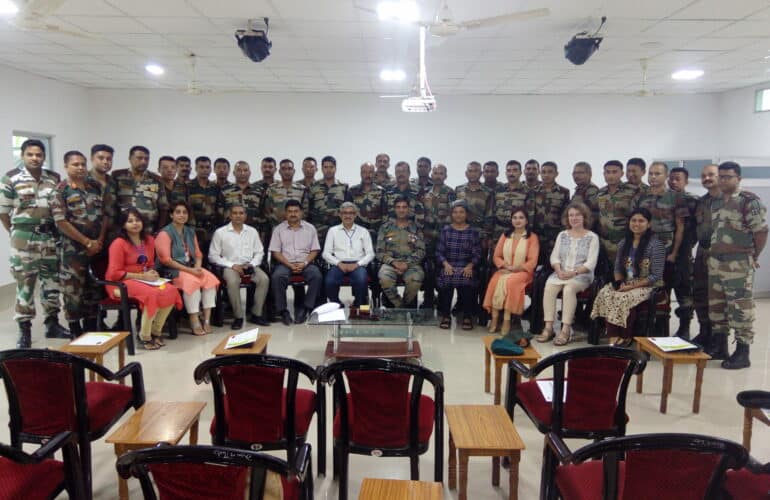Author: Lt. Alice Stella Verginia, Calicut for eHospice
Having been a part of the Indian Army, I felt really happy to learn that a palliative care centre was opened at the Base Hospital, Delhi Cantt. and at the Army’s Eastern Command. This made me wish and hope that all Defence Hospitals from across the country would soon establish a palliative care unit! If the armed forces can think about delivering good quality palliative care for their army personnels’ and families, I feel that the hour has come for the health system in the country to realize the imminent need to integrate palliative care in the main stream. I feel that all chronically ill patients and their families, whether they belong to the army or not, deserve quality palliative care when they are alive, in their end of life care and via bereavement support to the families after they pass on, in just the way a mother would care for her new born child.
The integration of palliative care curriculum into the UGC programs is important as palliative care education will transform the budding health care professionals to deliver the concept of total care to patients and their families. The in-service health care providers in the Defence like doctors, nurses and nursing assistants also need to be mandatorily trained in palliative care. Efforts are to be made to ensure that palliative care is not limited to only care for the terminally ill but for anyone who is admitted in the Defence Hospital with chronic illness and in need of total care.
In Defence Hospitals, the patients’ family members are not allowed to stay with their loved ones. The doctors and nurses at the hospital become the sole caregivers for these patients. I can assure you that while all their physical problems are addressed, some of their psychological, social and spiritual issues needs to be explored further.
A person experiences job stress under normal circumstances and are most often prepared for its consequences, both in terms of its physical impact and mental impact. The situation is however hugely different when there is a health problem / diagnosis. The patients’ in the armed forces therefore need support which goes beyond physical support to include psychological, social and spiritual support.
During the tenure of my services in the armed forces, I have come across innumerable patients’ and their family members who have communicated to me about their problems which go beyond the usual physical issues. These patients include those who lost their limbs during a war or an accident, those who are stroke patients, those who are experiencing the loss of a spouse, a child, a parent/s, a sibling, and it goes on… On several occasions, these soldiers need TOTAL CARE; they need someone with whom they can be vulnerable and share their intimate feelings and most importantly, someone who will listen to them without being judgmental. A soldier’s life or rather an ‘ARMY PERSON’S LIFE’ is not easy. They, along with their families need a lot of support while they are in service and also post their active service.


